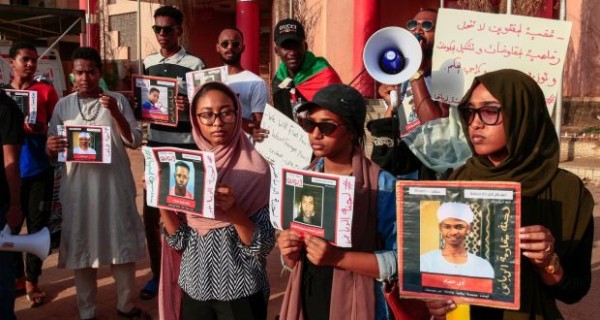
44,000 people missing in Nigeria And Other Part Of Africa, The International Committee of the Red Cross ( ICRC) has reported that around 44,000 people across the African continent are listed as missing, with almost half of them children.
Nigeria, Ethiopia, South Sudan, Somalia, Libya, the Democratic Republic of the Congo (DRC) and Cameroon make up 82 per cent of Africa’s missing caseload, the ICRC said in a statement issued Wednesday.
“As August 30 marks the International Day of the Disappeared, nearly 44,000 people across Africa are registered as missing with the ICRC at a time when restrictions put in place to curb Covid-19 create new challenges in searching for missing people,” the statement read.
According to the ICRC, about 45 percent of the cases were children.
“This caseload is a drop in the ocean to the true scale of people whose family members are searching for them,” said Sophie Marsac, the regional advisor for the missing and their families in Africa for the ICRC. “Conflict, violence, migration and climate shocks have not stopped separating families in the pandemic, but our work to find missing people has become even harder,” Marsac added.
“Families of the missing often suffer psychologically and face economic and legal challenges. The tragedy of missing people is a humanitarian crisis and one that cannot be forgotten as the world focuses on fighting the Covid-19 pandemic,” she added.
READ ALSO: Buhari Confirms 12 New Appointments [See Full list]
The ICRC also stressed that despite the increase in new cases, Covid-19 has created new challenges in searching for missing people as it is no longer possible to gather people in large groups to listen for names or look through photos.
“Many countries suspended domestic travel between states or provinces, making it more difficult for searches to be done over wider geographic areas. Access to places of detention, where the ICRC would look for cases, is suspended in some places to limit the risk of Covid-19 exposure,” the ICRC said.
It, however, stressed that digital tools have proven to be effective amid the limitations that Covid-19 brings.
The ICRC further called on authorities to acknowledge the tragedy of missing people and the impact that it has on families and to do everything in their power to prevent people from going missing, take measures to search for those who are missing, and provide information to families on the fate and whereabouts of their loved ones.
More than 3,300 people are registered with the ICRC in Ethiopia, the majority of whom are women and children, accounting for about 64 percent, it was noted.
The ICRC also stressed that inter-communal clashes and migration are the largest drivers behind missing caseload in Ethiopia today, in which more than 250 cases were opened so far in 2020.
Nigeria which reported nearly 23,000 people is ICRC’s largest caseload of missing people in the continent. More than 360 cases have been opened with the ICRC in Nigeria in the first half of 2020, it was noted.
The ICRC’s teams in South Sudan are also currently searching for more than 5,000 people, most of whom went missing because of inter-communal violence and conflict.
Women and children make up three-quarters of the more than 3,200 people registered as missing with the ICRC in Somalia, it was noted.
More than 500 missing people have been registered by the ICRC’s teams in the DRC in 2020, bringing the total of missing persons to 1,800.
Most of them went missing because of violence and conflict. The ICRC also stressed that conflict and migration are the causes for the missing caseload in Libya, which reports more than 1,600 people. The ICRC has more than 1,500 open cases of missing people in Cameroon, with more than 420 registered in 2020.
The ICRC stressed that the figures represent those cases documented as of the end of June, and they do not represent the total number of people missing in Africa.




